We saw this clip of Columbia University History Professor Christopher Brown and wanted to share it far and wide. Dr. Brown delivered these remarks on Monday, April 20 at a faculty-led “Rally to Support our Students and Reclaim our University.” He was responding to two events: Columbia President Minouche Shafik’s Congressional Testimony on April 17 and the arrest of more than 100 Columbia students the next day.
Professor Brown focuses on what is happening at Columbia but his words serve as a powerful rejoinder to any and all:
grandstanding politicians, who have no real understanding or appreciation of the mission of higher education
timid academic leaders, who lack the wherewithal to stand up for faculty and make a case for the transcendent values of academic freedom and open inquiry
Here is a transcript of Professor Brown’s remarks:
Good afternoon. I’m Christopher Brown, professor in the history department. This is the first time I’ve ever held a microphone at a protest of any kind. I’m not sure whether that’s something to take pride in or not but I say it because this is not typical for me.
I’m here because I am so concerned about what has happened at this university. With where we are now and with where we are going.
Thursday, April 18, 2024 will be remembered as a shameful day in Columbia’s history.
The President’s decision to send riot police to pick up peaceful protesters on our campus was unprecedented, unjustified, disproportionate, divisive and dangerous. We are fortunate. We don’t know how fortunate we are. We are fortunate that no one was hurt.
With that kind of show of force. With all those firearms, all it takes is one person to get nervous, a table to fall, a car or truck to backfire out on Amsterdam Avenue. Shots fired. The New York Police Department does not belong on this campus except in moments of extreme emergency.
And that show of force was a sign of weakness. In trying to show that they meant business, what they showed was their incompetence.
I want to say one other thing. And that’s about the congressional testimony on Wednesday. And this is about academic freedom. It’s also about Columbia.
In three hours of testimony, the president of the university, to my mind, showed no pride in our institution. She said nothing meaningful about the virtues of this institution, of its people, of its faculty, of its staff, of its researchers--their dedication to excellence, their commitment to their students, the quality of the undergraduates and graduate students that we have here, the distinctive record of academic accomplishment and impact, the variety and rigor of the scholarship which is happening here today, the prospects for continued excellence. She didn’t say anything about any of those things.
She allowed slander of our institution to stand without rebuke. Soviet style education, no response. Intolerant bigots, no response. I know these folks and you know them too. That’s not who we are and she should know that.
There were members of Congress who wanted to decide who should be disciplined on this institution and how much, what should be taught, how it should be taught, who should teach, what academic department should exist and which should not, who should lose their leadership positions, who should be promoted, who should be fired.
Those are academic questions. Those are not congressional questions.
What is at stake? What is at stake is not just faculty governance. It’s institutional independence. It’s the sovereignty of Columbia University and every university like this one.
The United States has the greatest colleges and universities in the world and that’s why people come from around the world to study here, to research here and to teach here. That’s our inheritance. The universities like this one. And we would be fools not to defend it in every corner from those who do not believe in the academic mission and the pursuit of academic excellence.
So I have no confidence in her leadership. I’m speaking only for myself. I have no confidence in the president’s leadership. With what she has said and with what she has not said; and with what she has done and what she has not done, she has forfeited the privilege to lead this great university.

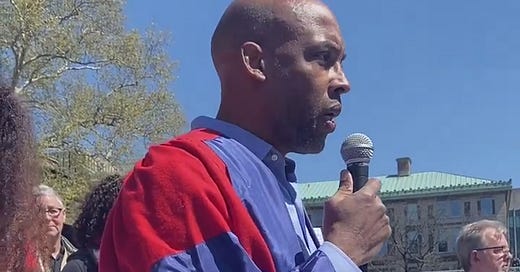






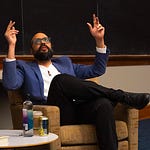
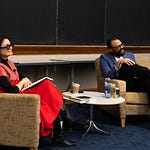
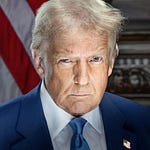
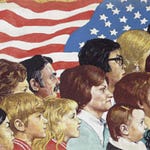


Share this post